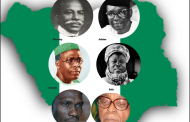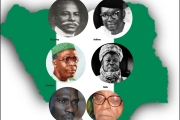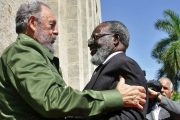All eyes are on Plateau State in central Nigeria which is reeling again in violence in three local government areas of Barkin Ladi, Jos South and Riyom where police figures of death now officially stands at 86. Alternative sources of figures are putting it at twice that figure because the violence in six villages in Barkin Ladi alone has been on throughout the weekend.
Casualty figures can be a bit problematic in reporting violence in Nigeria. Police figures went up from the 11 announced earlier in the day to 86 by yesterday night. Plateau State which has, ordinarily, been the site for violence between differing identities in the past decade, now made more complicated by diffuse wars superimposed on communal conflict that can be tasking for security forces. The latest round of violence is coming in spite of security beef up over the weekend by the Nigerian Air Force in particular, especially to Benue and Zamfara states. The State Government has already imposed curfew in the three adjoining LGAs.
Consensus has eluded Nigeria on who and why the country is experiencing the current siege. While some claim that it is the handwork of unforgiving foreign herdsmen whose cattles were trapped in the 2011 electoral violence; others like Professor Wole Soyinka, the National Christian Elders Forum and US president, Donald Trump say it is targeted killing of Christians; yet others such as President Buhari and former president, Olusegun Obasanjo take it as the handiwork of renegade fighters from Libya. One more group say these are not herdsmen but common criminals at work. Last is the Presidency’s contention that it is its opponents who are organising the killings.
Why the government has not been able to contain the militia is the puzzle now. Critics of government handling say that even if it is opponents, does that excuse the government from launching a full scale assault on the perpetrators? Could it be that the militia is so practised in diffuse or asymmetrical warfare? Does diffuse warfare automatically mean that the ‘combatants’ cannot be tracked and liquidated? Is it a problem of lack of technology and associated inability to man the country’s borders? If it is opponents of the government, are they also so efficient as to have remained elusive since 2016? Questions, questions, questions!
The expectation was that the two political parties would have met on the issue after the January killings in Benue State. No such thing has, however, materialised, consigning the crisis to the stinking bazaar of accusatory standpoints and claims. Meanwhile, the spate of violence is on the eve of a General Election to which everyone attaches so much importance. The Federal Government strategy of ranching has fallen into contestation arising from differing interpretation of what it stands for. The big question in other quarters is how come Nigeria left modernisation of animal husbandry to the point where it could be instrumentalised by roaming band of killers. Again, the dangers of an overwhelmed state that has never confronted the question of ruling class mission in a nation state lost in pluralism.




























